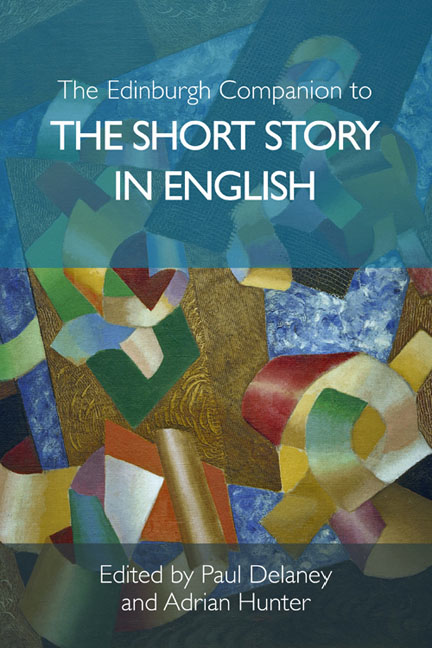Introduction
Published online by Cambridge University Press: 18 December 2019
Summary
IN HER TREATISE ON THE CONDITION of contemporary literary criticism, The Limits of Critique, Rita Felski notes how, following ‘a long period of historically orientated scholarship, scholars of literature and art are returning to aesthetics, beauty, and form’. On the one hand, Felski says, this is to be welcomed, kicking as it does against contextual and sociological approaches that would treat writing as a ‘symptom, mirror, index, or antithesis of some larger social structure’. On the other hand, proponents of the New Aestheticism and New Formalism risk repeating errors of old, reverencing the text as timeless, transcendent and self-enclosed in ways that merely bracket the ‘problem of temporality’ without resolving it.
The dilemma Felski outlines here will be familiar to any scholar of the short story. Since its inception in the late nineteenth century, academic criticism has been marked by precisely the kind of ‘zigzagging between dichotomies of text versus context, word versus world’ Felski describes – between the attempt to construct an abstract, transhistorical definition of the form that would distinguish it categorically from the novel, and a countervailing desire to account for the short story's cultural-historical specificity, by aligning it with the development of a particular national literature, say, or with a specific conception of authorship. That the trend in recent years has been strongly in the latter direction is evident from a survey of recent titles: The Postcolonial Short Story, Irish Women Writers and the Modern Short Story, British Women Short Story Writers, The Short Story and the First World War, and Art and Commerce in the British Short Story – studies whose stress on history, materialism and identity is rooted, more or less explicitly, in a rejection of the kind of formalist and cognitivist approaches favoured by proponents of the so-called ‘new short story studies’ of the 1980s and 1990s: Susan Lohafer, John Gerlach, Charles E. May and others. Where for these earlier critics questions of formal and generic definition were central, today it is the cultural, historical and ideological functions of the short story that predominate.
Of course, such oscillations are ubiquitous across the field of literary studies, as Felski and other surveyors of the ‘postcritical’ future point out.
- Type
- Chapter
- Information
- Publisher: Edinburgh University PressPrint publication year: 2018



